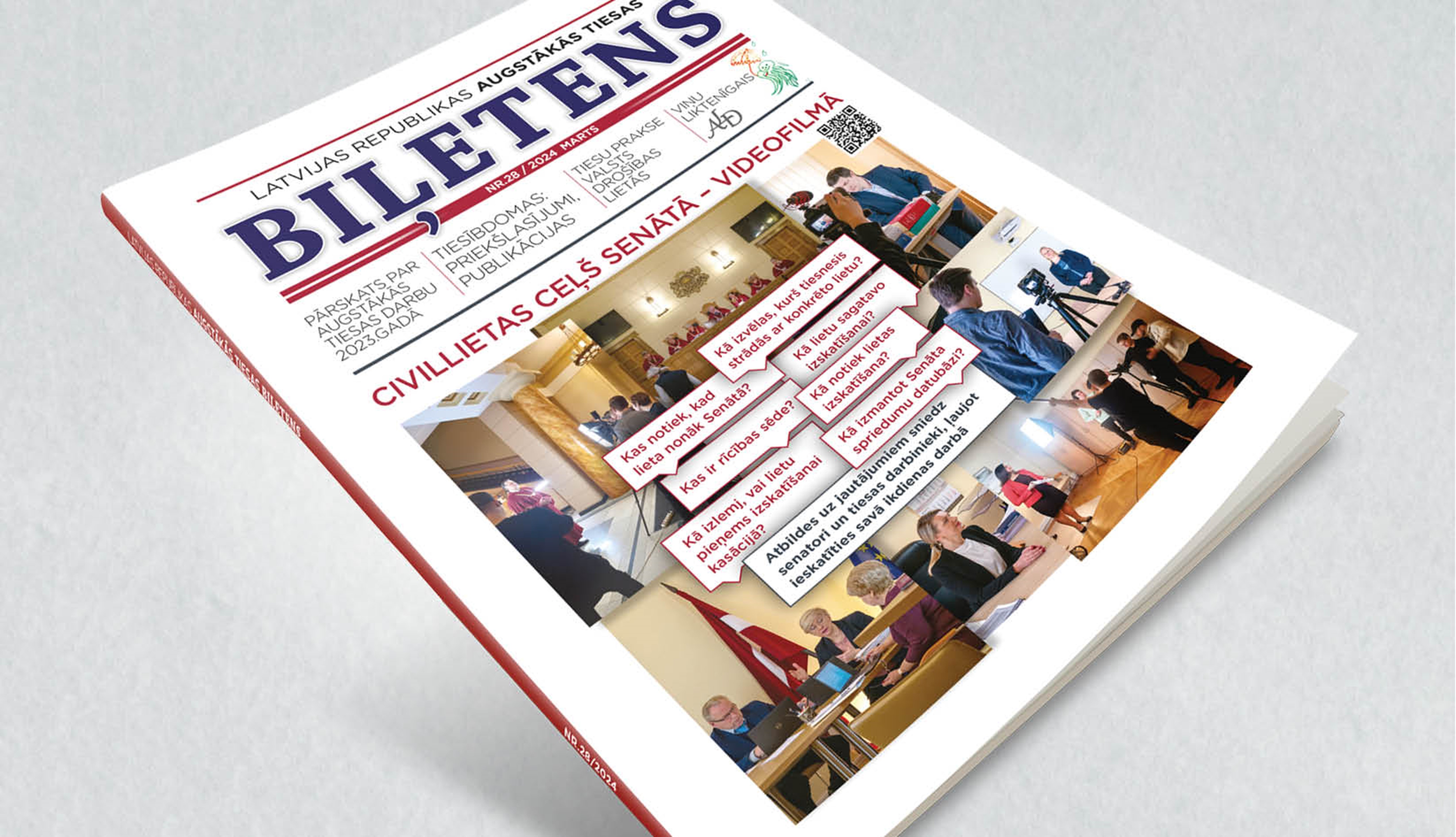11. marts, 2024.
An overview of the Supreme Court (Senate) performance in 2023 has been published in the latest Supreme Court Bulletin. It contains statistics and reports given by chairs of Senate’s Departments, which include analysis of the most significant legal issues and rulings of the past year. The overview also includes the reports of heads of the Division of Case-law and Research and the Administration. The President of the Supreme Court delivers a summary of accomplished tasks and what needs to be done, emphasizing the importance of cooperation both among Departments and with lower courts. The speeches of the guests of the Annual Performance Report Plenary Session of the Supreme Court have also been published: the Prosecutor General expresses the opinion that the competence of the cassation court in criminal proceedings should be changed, while the Minister of Justice emphasizes that the Senate should explain in its rulings the issues important to the Latvian statehood.
In the section dedicated to legal thoughts, the speech of Aigars Strupišs, the President of the Supreme Court, given at the conference of the Riga Regional Court on the digitalization of legal proceedings is available. Speaking about the possibility of use of artificial intelligence in the administration of justice, the President emphasized that “the Constitution speaks about a judge as a person, not a robot”.
Dzintra Amerika, the Senator of the Supreme Court, the former Chair of the Commission, wishes the book to become worn-out – such an unusual wish for the second collection of findings of the Judicial Ethics Commission. Because a worn-out book means that it has been read a lot, thus proving to be a useful book. Speeches given by other senators at the opening of the book are also published in the Bulletin.
Extensive material on challenges and possible legal solutions related to the claim of negative recognition in civil proceedings – is the topic of the research by Reinis Odiņš, the Legal research counsel to the Department of Civil Cases of the Senate, conducted within the doctoral school of the Faculty of Law of the University of Latvia. Whereas, Zinaīda Indrūna, the Consultant to the Division of Case-law and Research, analyzes the Senate's findings and case-law of the Latvian Senate during the interwar period on issues of legal interest and recovery of damages for compensation for work which is not timely paid.
In the section of legal practice, a summary of sentencing practices for crimes against national security will captivate one’s interest. Anita Poļakova, the Chair of the Department of Criminal Cases of the Senate, referring to this summary, emphasizes that the courts have to keep up with the actual state security situation, and states that "the most important contribution that this summary should provide is to give a strong hint, an impulse to the courts that the situation is not the same as it was, when these legal norms were applied two, three years ago".
The history section marks 20 years of the establishment of administrative courts. To some extent, the conversation with Līva and Agris Dreimanis in the column titled "On the other side" is also related to this – as they, when working as senators' assistants in the Department of Administrative Cases of the Senate, not only improved their expertise in administrative law, but also formed their family.
The Supreme Court Bulletin is published twice a year. It is received by Latvian courts and other institutions of the judicial system, as well as libraries and law faculties of universities. Issue No 28 of the Bulletin is already available electronically on the Supreme Court's website.
- See here: Supreme Court Bulletin No 28
Information prepared by
Rasma Zvejniece, the Head of the Division of Communication of the Supreme Court
E-mail: rasma.zvejniece@at.gov.lv, telephone: +371 67020396, +371 286522


